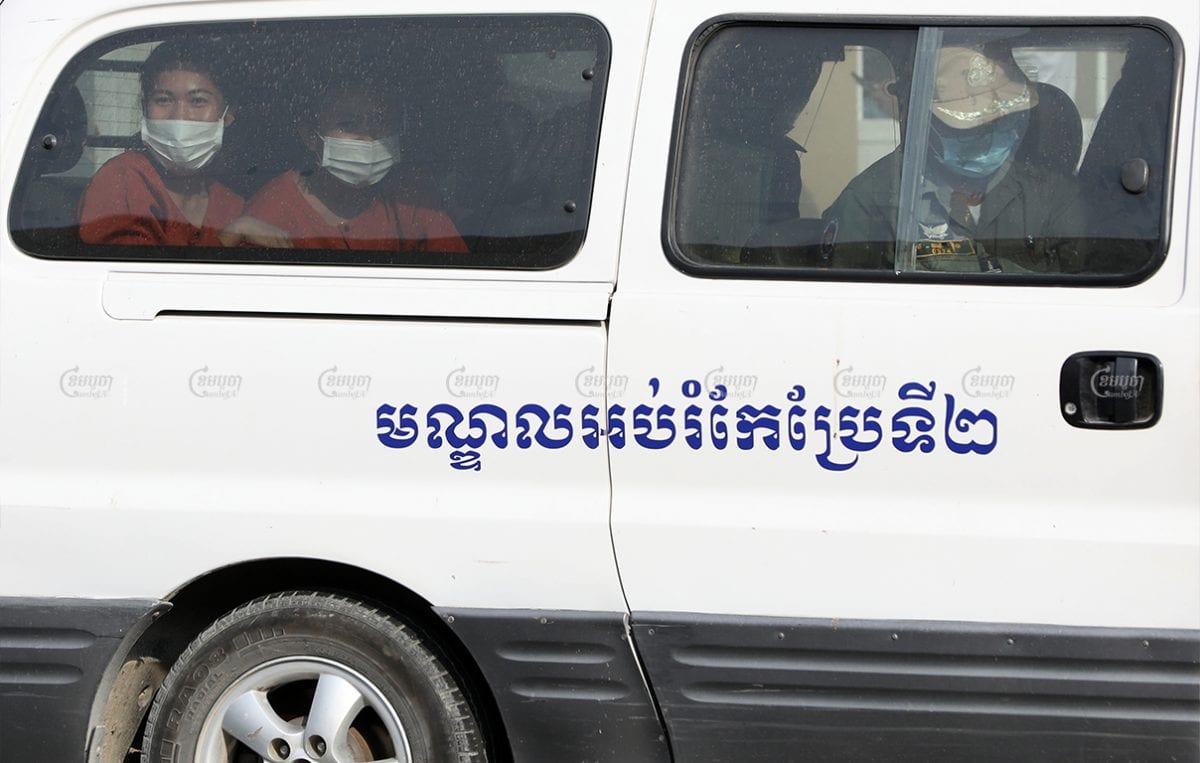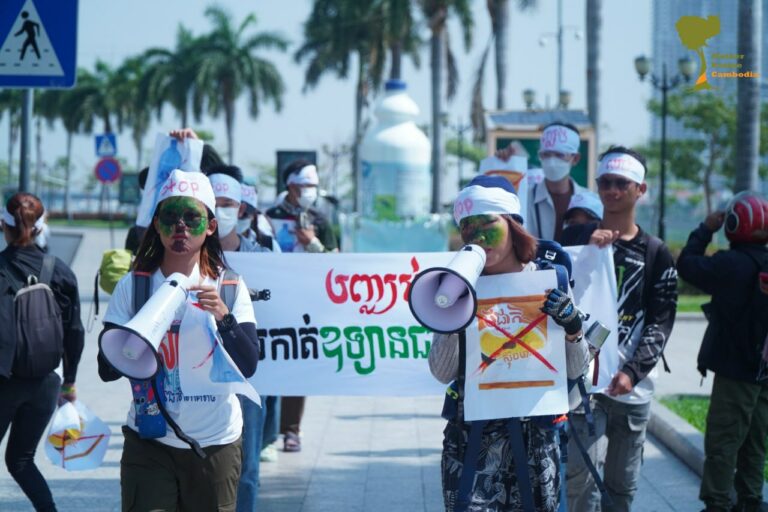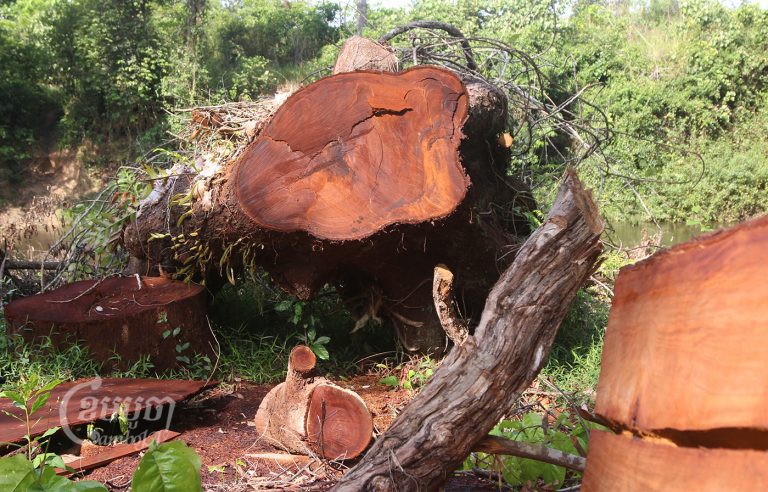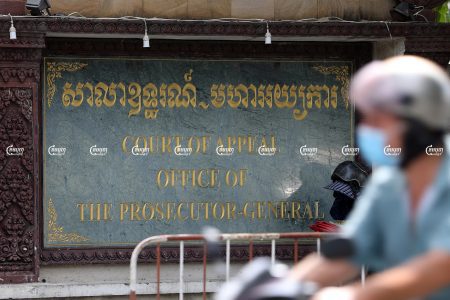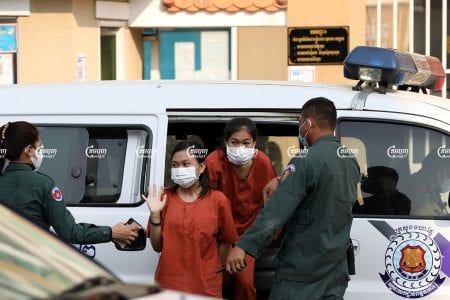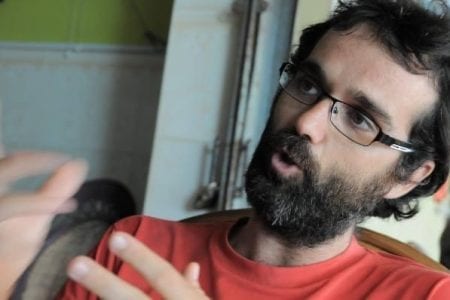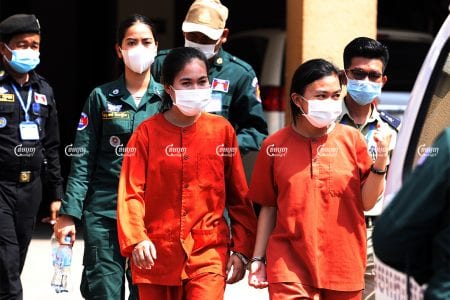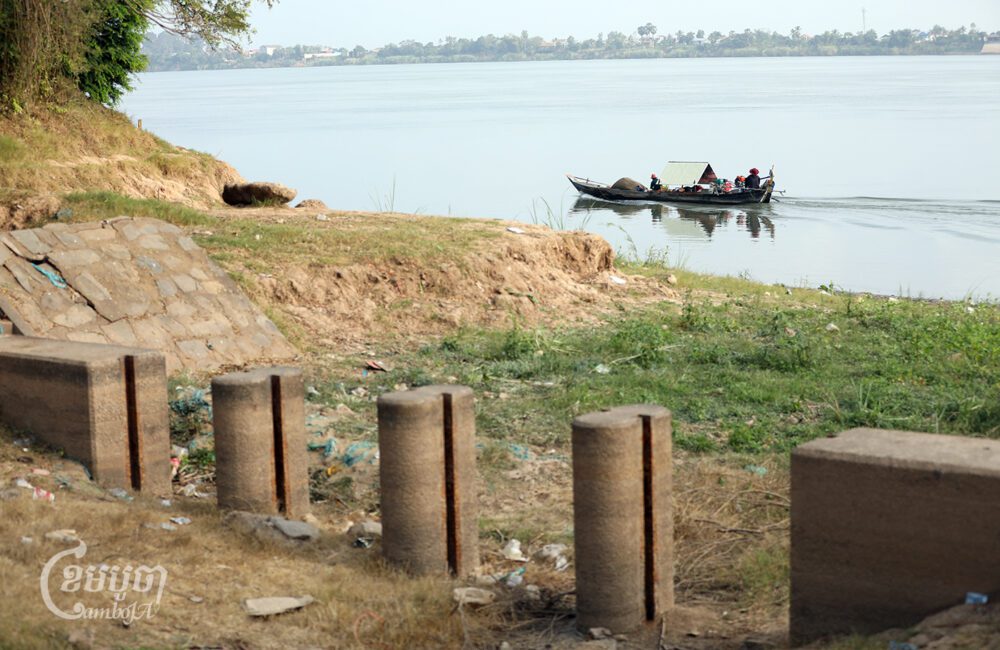On Thursday, a Phnom Penh court officially concluded the trial of three environmental activists charged last year with incitement after protesting the filling of Boeng Tamok lake.
The activists, all members of non-governmental organization Mother Nature Cambodia, are scheduled to receive their verdict May 5 from the Phnom Penh Municipal Court.
Prosecutors have asked the court for a stiff punishment against the activists, Long Kunthea, Phuon Keoreaksmey and Thon Ratha. The three were arrested in September over social media posts they had written stating they had planned to march to Prime Minister Hun Sen’s house to raise awareness on environmental issues caused by the filling of the lake in the north of Phnom Penh.
Boeng Tamok is one of many bodies of water in the metro area currently being filled, mostly by private developers, with little to no transparency or public input.
Thursday’s trial focused on interrogations done by judicial police who had arrested the activists and compiled evidence against them. Bun Sok Seikha, Phnom Penh deputy police chief, told the court that, after questioning Kunthea and Keoreaksmey over the offending social media posts, he had examined the phones of the defendants and found what he said appeared to another offense related to the third activist, Thon Ratha.
The deputy police chief alleged Thon Ratha had operated “a studio without permission”, stating that the activist’s posting qualified as “incitement [that] caused insecurity in society”.
Sok Sekha said Thon Ratha had contacted Mother Nature co-founder Alejandro Gonzalez-Davidson, to receive orders for doing unlawful activity — in this case, posting content about sand dredging on the environmental group’s Facebook page. The deputy police chief pointed out that Mother Nature has not been officially registered as an NGO since it was struck from the Interior Ministry’s list in 2017. Mother Nature had been dissolved after investigating illicit sand dredging operations in coastal Koh Kong province.
During the trial of the activists, the court has seen various videos produced by Mother Nature activists covering sand dredging but also other topics such as sewage draining into the sea, filling of lakes and other environmental issues carried out from 2013 until 2020.
Environmental crimes are believed to be commonplace in Cambodia. A forestry crimes report issued just last week provided the latest accusation of state involvement in illegal logging operations in protected forests.
In their current legal dispute, the Mother Nature defendants denied the charges against them and asked the court to dismiss the case. But Kuch Kimlong, a deputy prosecutor, requested the judge uphold the incitement charges against the acvisists and punish them for their alleged speech violations. The prosecutor argued that freedom of expression cannot be used arbitrarily beyond the law or to impact the rights of others.
“All activities of the defendants caused incitement and disturbed social security,” Kimlong said.
The three activists were charged with direct incitement to commit a felony or to disturb social security, under articles 494 and 495 of the Cambodian criminal code. If found guilty, the trio could face up to two years in prison. Mother Nature director Gonzalez-Davidson was handed the same charges in absentia along with Young Khmer Thavark Movement member Chea Kunthin. Gonzalez-Davidson, a Spanish national, had previously been charged with incitement for his organization’s work in 2015 documenting sand extraction in Koh Kong. Though he was eventually exonerated, three other Mother Nature activists were sentenced in 2016 to prison after being convicted of “threatening to cause destruction, defacement or damage”.
In this latest case against one of Cambodia’s most prominent environmentalist groups, defendant Thon Ratha has requested the judge to make a decision according to the law, and not under influence politicians, he cited to the current government leaders.
“I ask the court to acquit the charge and make its judgement not under influence from someone [else], because I have always heard about that issue,” he said.
Kunthea and Keoreaksmey made a similar plea, asking the judge to acquit them on all charges.
Sam Chamroeun, one of three defense lawyers on the case, said there was no basis to the charge against his client because all of the alleged activities were to “protect the environment and serve national interest”.
“We have seen there was no damage after posting those messages, nor people standing to protest,” Chamroeun said. He added that his client’s activity was conducted under legal frameworks in line with Law on Environment and Protection Natural Resources, which encourages the public to protect the environment.
“They have a purpose to raise concerns and find resolution from their leaders,” he said.
The defense attorney said his clients have only exercised “right freedoms of expression and raised a concern” which is standard in democratic society.
Chak Sopheap, executive director at CCHR, called on the court to drop the charges levelled against the three activists, saying the case constitutes a clear violation of the fundamental freedoms of expression and association.
“The government must stop viewing activists and human rights defenders as political dissidents and release all those arbitrarily arrested for exercising their rights and freedoms,” she said. Sopheap said that fundamental freedoms still apply with full legal force, even if the individuals or groups involved are acting for a cause with which authorities disagree.
“We wish to see these three activists immediately released and the charges against them unconditionally dropped,” she said.


